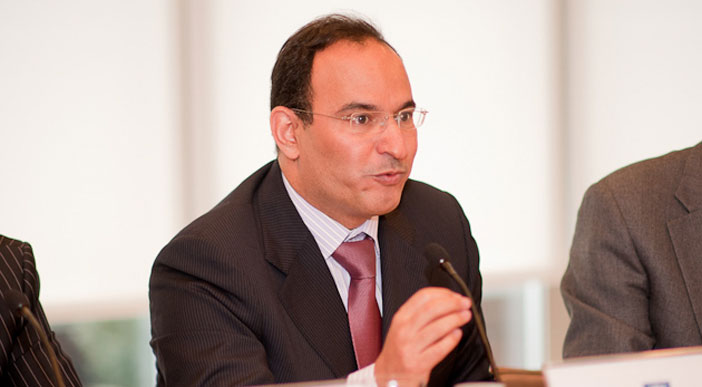
On February 24th, IPI hosted a policy forum on the liberation of Kuwait from Iraqi occupation and the role the United Nations played in that effort.
The event’s panel was led by Mansour Ayyad Al-Otaibi, Permanent Representative of the State of Kuwait to the UN, who said that despite doubts in 1990 that the UN would be able to confront the challenge the Iraqi invasion posed, the member states mobilized their political will, and the UN succeeded.
“It was a living example of the capability of the international community to adhere and commit to the provisions of the UN Charter, thus embodying the concept of collective security, as well as the maintenance of international peace and security,” he said.
From August 1990 through February 1991, the Security Council issued thirteen resolutions, the most notable of which were Resolution 661, imposing comprehensive sanctions on Iraq, and Resolution 678, demanding that Iraq withdraw from Kuwait within forty-five days and threatening “all necessary means” in the case of noncompliance.
The day of the event marked the twentieth anniversary of the day the final land campaign began to free Kuwait from Iraqi occupation.
The Ambassador was joined on the panel by Jehangir Khan, Deputy Director, Middle East and West Asia Division, UN Department of Political Affairs; Roy S. Lee, Adjunct Professor at Columbia Law School and former Director of the UN Legal Office, Codification Division; and Giandomenico Picco, Chairman, CEO, GDP Associates and former UN Assistant Secretary-General for Political Affairs.
Entitled “Twenty Years Later: The Liberation of Kuwait and the Role of the United Nations,” the event was moderated by Warren Hoge, IPI Vice President for External Relations.







